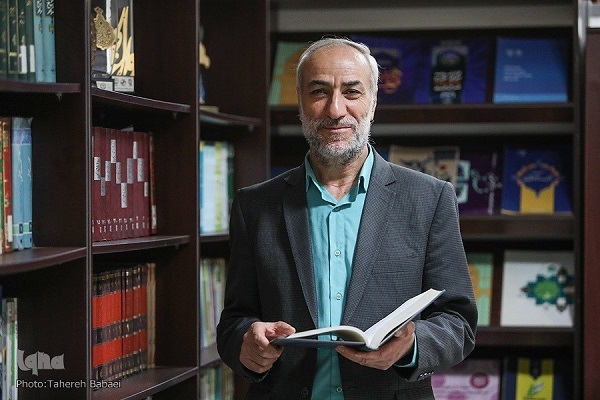AhlulBayt News Ag ency: Imam Hassan (AS), the second Shia Imam, set an example for Muslims in bravery and Jihad, and one can find some instances of this bravery in the sermons of Nahj al-Balagha.
Bakhshali Ghanbari, a Nahj al-Balagha researcher, discussed “social morality based on Nahj al-Balagha” in a series of lectures. Here are excerpts from the second session on “the status of Imam Hassan (AS)”:
Imam Ali’s (AS) principles of life were, in all aspects, based on the Quran and Sunnah of the Holy Prophet (PBUH). In his social life, he also acted based on the Divine orders and Nabawi Seerah, which can be considered a perfect example for everyone.
The Imam addressed his son, Imam Hassan (AS), in different parts of Nahj al-Balagha. One of the most important parts is Letter 31 of the book.
Most of the interpreters of the Quran believe that Imam Ali (AS) wrote this letter to Imam Hassan (AS) and that the letter shows the great status of Imam Hassan (AS) before the first Imam.
Moreover, in some other letters of Nahj al-Balagha, Imam Ali (AS) appointed Imam Hassan (AS) as his representative to different regions.
Ibn Abi’l-Hadid, a Shafe'i Mutazili scholar and writer, repeatedly noted in his Commentary on Nahj al-balagha that Imam Hassan (AS) played the role of an advisor to Imam Ali (AS) and, according to Imam Ali (AS), his consultations were so precise.
Sermon 207 of Nahj al-Balagha is about the battle of Seffin. When Imam Ali (AS) was looking at the soldiers’ lines, he saw that Imam Hassan (AS) was proceeding rapidly to fight. It shows he was as courageous as his father.
Seyyed Radhi wrote in Sermon 207 that Imam Ali (AS) then said: “Hold back this young man on my behalf, lest he causes my ruin, because I am loath to send these two (meaning Hassan and Hussein) towards death, lest the descending line of the Prophet - may Allah bless him and his descendants - is cut away by their death.”
The fact that Imam Ali (AS) was so concerned about Imam Hassan (AS) and Imam Hussein (AS) had different reasons. Shias believe that these two great brothers were completing two aspects of the characters of Imam Ali (AS) and the Holy Prophet (PBUH), one of them in seeking peace and the other in Jihad.
Imam Hassan’s (AS) role in seeking peace is not less important than Imam Hussein's (AS), because the health and life of the people were so important to him that he was forced to accept peace with Mu’awiyah.
Islam is a religion of peace and health and not fighting, unless Jihad is inevitable for defense.
Here I refer to three characteristics of Imam Hassan (AS) taken from Nahj al-Balagha and other Hadiths. The first is that the Imam was peaceful and raised the flag of peace at a time when society was really in need of peace. Because he knew that the Quran says: “If anyone kills a person- unless in retribution for murder or spreading corruption in the land- it is as if he kills all mankind, while if any saves a life it is as if he saves the lives of all mankind.” (Surah Al-Ma'idah, verse 32) That is why Imam Hassan (AS) accepted the fair peace and this is a very important characteristic of the Imam.
The second is his courage mentioned in Imam Ali’s (AS) saying. Imam Hassan (AS) was really courageous and he completely showed it in the three battles of Jamal, Siffin and Nahrawan.
The third is his munificence from which many lessons can be learned.
Hence, Imam Hassan (AS) has a great status among Muslims including Shias and Sunnis.
/129
29 May 2023 - 07:22
News ID: 1369522

Imam Hassan (AS), the second Shia Imam, set an example for Muslims in bravery and Jihad, and one can find some instances of this bravery in the sermons of Nahj al-Balagha.
